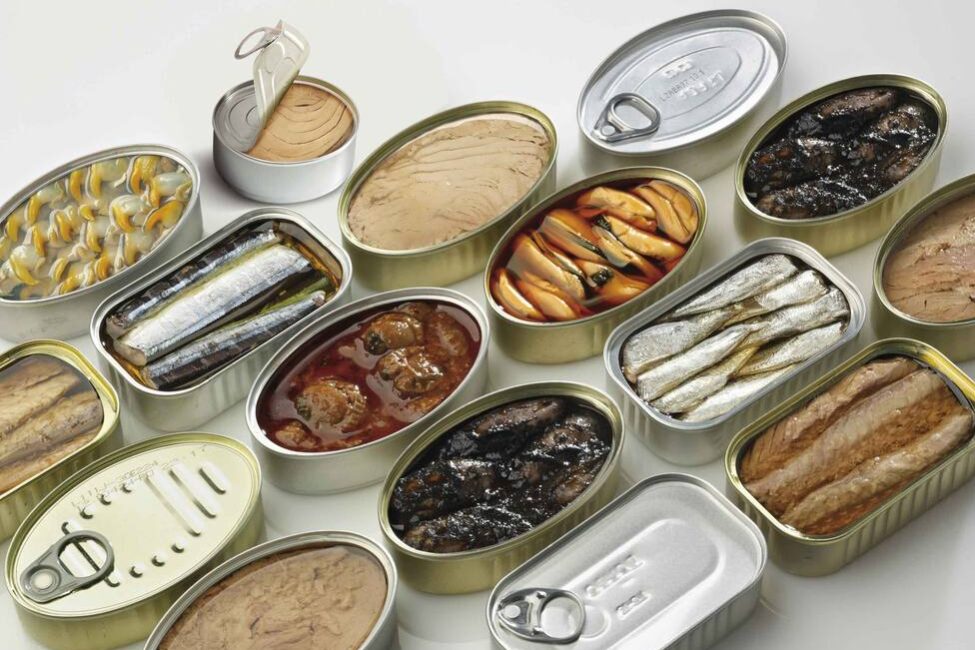Fish is among the foods exerting favourable effects on colorectal cancer (CRC), but the possible role of canned fish has been insufficiently investigated.
The research
We aimed to investigate the relationship between canned fish consumption and CRC risk. We analysed data from two case–control studies conducted between 1992 and 2010 in several Italian areas, comprising a total of 2419 incident cases and 4723 hospital controls.
Canned fish consumption was analysed according to the weekly frequency of consumption as <1 serving per week (s/w) (reference category), 1 < 2 s/w, and ≥2 s/w. We calculated odds ratios (ORs) and 95% confidence intervals (CIs) using unconditional logistic regression models, adjusting for several recognised confounding factors.
The findings
Overall, canned fish consumption was lower among cases than among controls (23.8% vs. 28.6%). An inverse association was found between canned fish consumption and CRC risk with a significant trend in risk (OR = 0.81, 95% CI: 0.71–0.92 for intermediate consumption and OR = 0.66, 95% CI: 0.51–0.85 for the highest one), which was consistent across strata of several covariates.
This study is the first to offer a basis of support for canned fish consumption as a component of a healthy diet, and it has relevant public health implications given the high ranking of CRC in incidence and mortality worldwide.
More info:
Link: https://www.mdpi.com/2072-6643/14/8/1663/htm
Date: Published: 16 April 2022
Authors:
Carlotta Franchi 1,2,*OIlaria Ardoino 1,Cristina Bosetti ,Eva Negri 4,Diego Serraino ,Anna Crispo 6,Attilio Giacosa 7,Elena Fattore 8ORCID,Alberto Dolci 9,Francesca Bravi 10,Federica Turati 10,Carlo La Vecchia 10 andBarbara D’Avanzo 1
1
Department of Health Policy, Istituto di Ricerche Farmacologiche Mario Negri IRCCS, 20156 Milan, Italy
2
Italian Institute for Planetary Health (IIPH), 20156 Milan, Italy
3
Department of Oncology, Istituto di Ricerche Farmacologiche Mario Negri IRCCS, 20156 Milan, Italy
4
Department of Medical and Surgical Sciences, Alma Mater Studiorum, Università di Bologna, 40126 Bologna, Italy
5
Unit of Cancer Epidemiology, Centro di Riferimento Oncologico, National Cancer Institute IRCCS, 33108 Aviano, Italy
6
Epidemiology and Biostatistics Unit, Istituto Nazionale dei Tumori IRCCS, Fondazione G. Pascale, 80131 Naples, Italy
7
Department of Gastroenterology and Clinical Nutrition, Policlinico di Monza, 20900 Monza, Italy
8
Department of Environmental Health Sciences, Istituto di Ricerche Farmacologiche Mario Negri IRCCS, 20156 Milan, Italy
9
Research and Development Department, Bolton Food SpA, 20124 Milan, Italy
10
Department of Clinical Sciences and Community Health, Università degli Studi di Milano, 20133 Milan, Italy
*
Author to whom correspondence should be addressed.
Nutrigenomics Institute is not responsible for the comments and opinions included in this article






